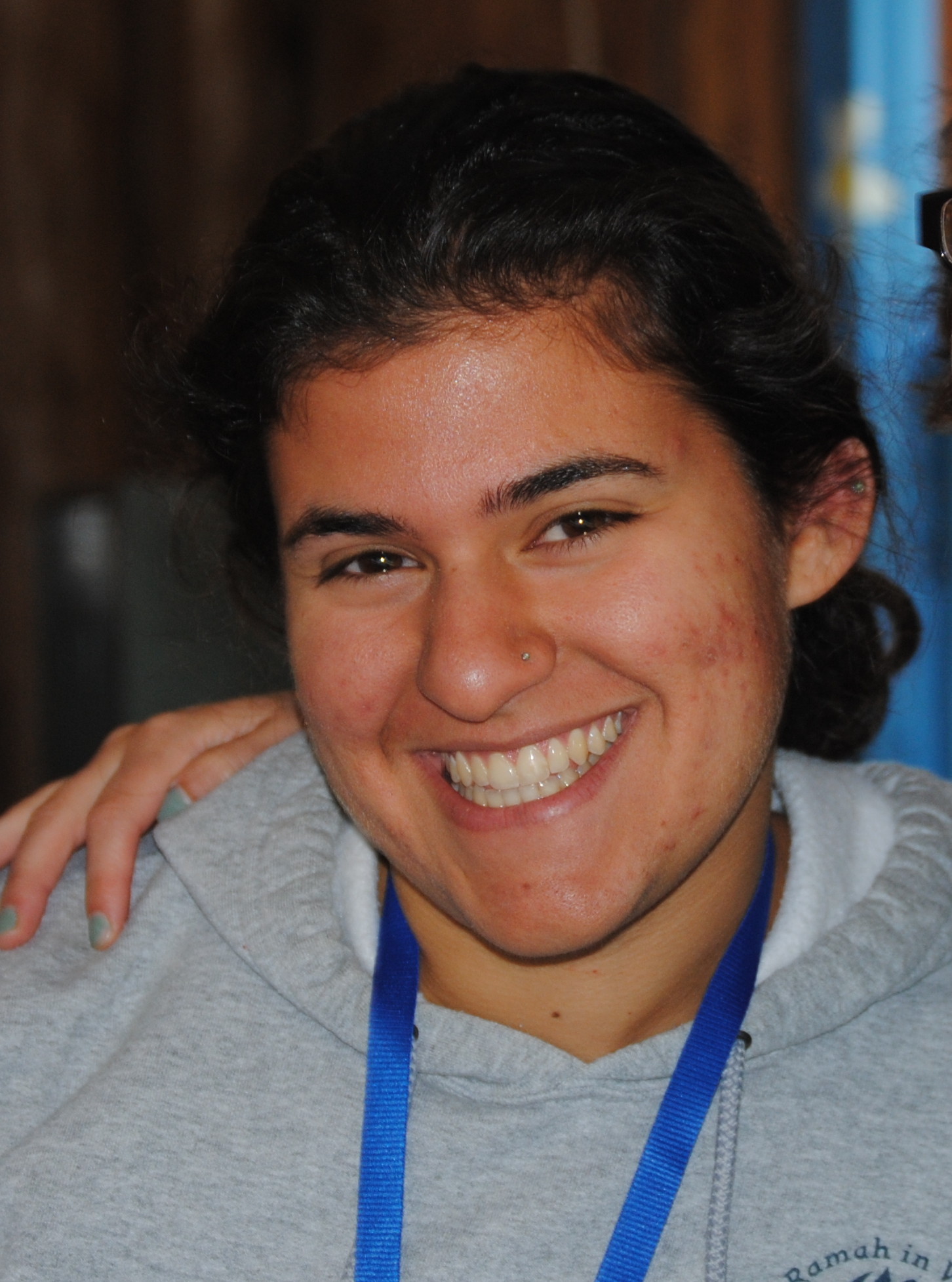Please enjoy a D’var Torah this week from Aviva Schwartz, Rosh Nivonim 2015. Aviva graduated from Clark University in Worcester, MA, with a degree in International Development and Social Change with a concentration in Race and Ethnic Relations. She is currently continuing on at Clark and will graduate in May with an M.A. in Community Development and Planning. Reflections on Parashat Bo by Aviva Schwartz
The final line in this week’s Torah reading, Parashat Bo is, “And so it shall be as a sign upon your hand and as a symbol on your forehead that with a mighty hand the Eternal freed us from Egypt” (Exodus 13:9). This is when we are first told to wear tefillin (phylacteries) on our hands and our forehead, as a way to remember how God freed us from Egypt. Jews in Morning Prayer wear tefillin not just as a way to remember our love for God, nor simply to follow all of the 613 commandments. Rather, we wear tefillin to remember the struggle, the suffering, the redemption, and the strength that it took for God to free the Israelites from the hands of a Pharoah with a hardened heart.
I have had the privilege of wearing my tallit (prayer shawl) and tefillin every summer at camp since I was thirteen years old, and this has served as a constant reminder of what is important to me, and what should drive me each day. As is common in camp, the community learns this message, not only the individual. At camp, all men and some women wear tefillin, serving as a reminder for the entire Aidah (grade cohort) to reflect on how the struggles and sufferings of all in Egypt can guide us. All too often we minimize the redemption from Egypt to the Israelites suffering at the hands of the Egyptians and God saving us. Unfortunately, there is more to the story. No Egyptian family escaped the suffering caused by the plagues and the death of their first-born, and no Israelite family was spared from slavery. No individual in Egypt – neither Egyptian nor Israelite – was spared from the dysfunction created by a society built on slavery.
Luckily, at camp we are protected and hidden from many of the events of the rest of the world. And for two months we have the privilege to imagine a world without the daily pain and suffering that too many people around the world face. At camp we are able to focus on the everyday activities and interactions with the people around us. We can focus on treating our Aidah-mates with respect, shaking hands with the opposing Aidah team regardless of whether or not we won the softball game, and Nivonim (our oldest campers, 11th grade) welcoming in other Aidot to the Zimriah (song festival) with a smile and encouraging face. We can incorporate lessons we learn at camp into the work we do throughout the year, whether that be protecting a peer who is being bullied, attending a rally to support those who cannot stand up for themselves, or defending others or our values even when it can be painful and confusing for us.
I invite you all to share in a charge I have given to myself: Each day we wear tefillin, or see someone in our community wearing theirs, let us have the strength to learn from the suffering of our Israelite ancestors who were slaves, the Egyptians who enslaved them, and God. Allow us to be guided by the challenging decisions of patriotism, suffering, and self-defense that they faced. May we learn from the past when we find ourselves in similar situations where the suffering and redemption of others might be in our own hands. I hope that each of us can come together within our communities to reduce suffering around the world and to fight for what is right, while always recognizing our responsibilities in the pain and sadness we might cause.






